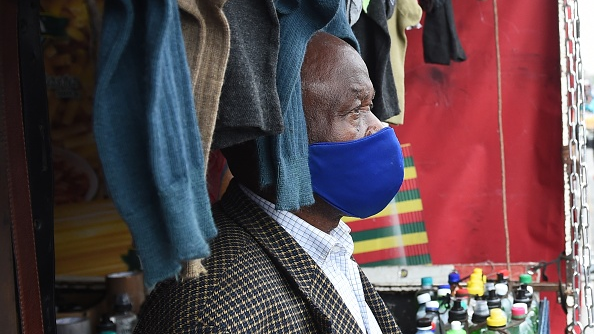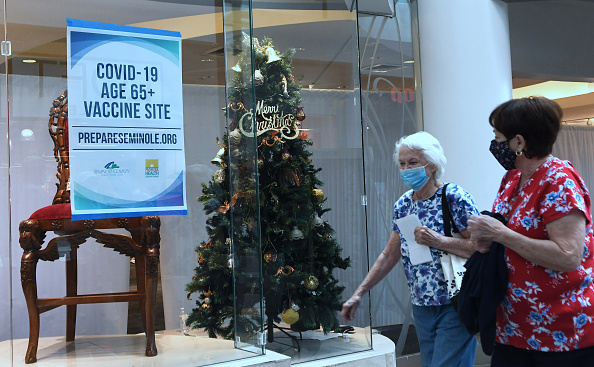
Editor's note: Hamzah Rifaat Hussain is a former visiting fellow at the Stimson Center in Washington, and currently serves as assistant researcher at the Islamabad Policy Research Institute (IPRI) in Pakistan. The article reflects the author's opinions, and not necessarily the views of CGTN.
With the start of 2021, international focus on the coronavirus pandemic has shifted to vaccines, immunization and the ability to curb COVID-19. For Africa, any delay in making an efficacious vaccine available could result in far-reaching consequences for the continent's governments and impoverished regions and populations.
Africa continues to struggle with terrorism, poverty, malnutrition and social upheavals and cannot afford delays in vaccination campaigns. This requires a joint, coordinated strategy from the international community to ensure the provision of universal access of jabs to avert a catastrophe on the continent.
The Pfizer/BioNtech vaccine has already been listed by the World Health Organization (WHO) for emergency use and AstraZeneca has been approved in the UK. This optimism should not detract from the challenge of lack of universal distribution of potent vaccines.
The head of the Africa Centers for Disease Control and Prevention (CDC) John Nkengasong said that the world risks "a moral catastrophe" if COVID-19 shots are delayed in Africa. Latest statistics of Africa CDC support this assessment given that in the last week of December, cases increased by nearly 19 percent with deaths up by 26 percent.
However, little attention is being paid to the COVID-19 quagmire in African states such as Malawi, Mozambique and Zambia as well as in other nations torn apart by conflict and domestic discord.
As of December 31, 2020, Africa has recorded 2.7 million COVID-19 cases and 64,000 deaths. Furthermore, South Africa and Nigeria have detected the new COVID-19 variant initially identified in the United Kingdom.
Social inequality, poverty and exhaustion of health care facilities only compound the problem. Countries such as Nigeria and Ethiopia are grappling with domestic terrorism and civil strife in the form of Boko Haram and the Tigray rebellion, endangering locals, damaging infrastructure and hindering access to medical facilities.

Women walk past a Christmas tree in the window of an unoccupied store on New Year's Eve where a COVID-19 vaccine site for seniors has been set up at the Oviedo Mall, U.S., December 31, 2020. /Getty
Women walk past a Christmas tree in the window of an unoccupied store on New Year's Eve where a COVID-19 vaccine site for seniors has been set up at the Oviedo Mall, U.S., December 31, 2020. /Getty
Each country in Africa suffers from a myriad of issues. This calls for commitment from the international community to ensure unfettered access to vaccines in Africa. But there are two major hurdles: global availability of jabs based on the principle of universality and financing vaccine purchases.
We can easily find ourselves in a moral crisis if efficacious vaccines such as that of Pfizer/BioNTech and AstraZeneca are stocked in richer nations. This is exactly why the African Union is in talks with the European Union, Canada and numerous pharmaceutical companies to secure doses at a time when there are delivery delays in countries such as Germany, forcing the suspension of vaccine campaigns due to shortages.
Africa is relying on the COVAX program, a WHO global scheme to deliver COVID-19 vaccines to poorer nations. It aims to make sure that two billion doses can be evenly distributed to continents such as Africa by the end of 2021. The COVAX alliance has said that its first deliveries were due in early 2021.
For the rest of the continent however, there is great uncertainty given that the lack of local manufacturing of vaccines and strong testing capacities could result in a similar scenario to that of the H1N1 swine flu outbreak a decade ago. Back then, African nations were scrambling for a vaccine with many Western nations far ahead.
Such a scenario needs to be avoided given the seriousness of the second wave of the pandemic. 2021 can only usher in new hope for the continent provided that the international community focuses on averting a moral catastrophe on Africa's shores.
(If you want to contribute and have specific expertise, please contact us at opinions@cgtn.com.)

